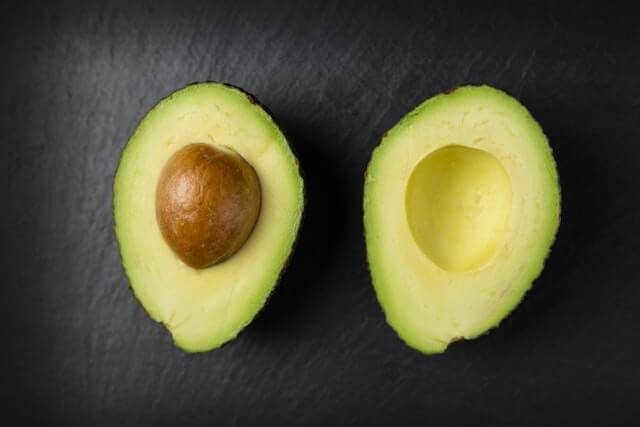Introduction to dogs and avocados (is avocado bad for dogs?)
As a dog owner, it’s natural to wonder what foods are safe for your furry friend to consume. questions like is q=avocado bad for dogs? is normal, especially with avocado being a popular and nutrient-rich fruit, that become a staple in many human diets. But can dogs eat avocado? The answer is more complex than you might think. This article will uncover the truth behind avocado’s impact on canine health. By so doing, helping to answer the question, is avocado bad for dogs?
is avocado bad for dogs?
There is no direct answer to this question. it is not that simple to say a short answer as yes or no, if dogs can eat avocado. This is because yes dogs can eat avocado and no as well. Though dogs can eat avocado, There are, some crucial factors that should be considered before feeding this fruit to your canine companion. Avocado contains a substance called persin, which can be toxic to certain animals, including birds, horses, and cattle. While persin is generally considered safe for dogs, it can still cause gastrointestinal upset in some individuals. Therefore, it’s crucial to introduce avocado to your dog’s diet in moderation and monitor their reaction closely. so, is avocado bad for dogs? yes if proper care is not taking before providing this fruit to them.
is avocado bad for dogs? potential risks of feeding avocados to dogs
While avocado is generally safe for dogs to consume, it does come with some potential risks. The high-fat content of avocados can lead to weight gain and even pancreatitis in dogs, especially if consumed in large quantities. Additionally, the avocado pit poses a choking hazard and can cause intestinal blockages if ingested. Removing the pit and any skin or leaves before offering avocado to your dog is essential. can dogs eat avocados? yes they can if proper care is taking to avoid the risk mentioned above.
Avocado’s nutritional benefits for dogs
Despite the potential risks, which raises the question is avocado bad for dogs?, there are potential benefits which avocados can provide. These several nutritional benefits for dogs contributes to their overall well-being. for instance, avocados are rich in healthy fats, such as omega-3 fatty acids, which promote a shiny coat and healthy skin. Avocados also contain vitamins A, C, and E, potassium, and folate. These nutrients support dogs’ overall immune function, eye health, and energy production. However, it’s crucial to remember that avocados should only be offered as an occasional treat, not a substitute for a balanced diet.
How to safely introduce avocado into your dog’s diet
If you decide to introduce avocado into your dog’s diet, it’s essential to do so safely. Start by offering small amounts and observe your dog’s reaction for any signs of digestive upset or allergic reaction. You can gradually increase the portion size if your dog tolerates avocados well. Always remove the pit, skin, and leaves, as they can pose a choking hazard or cause intestinal blockages. It’s also essential to consult with your veterinarian before significantly changing your dog’s diet.
Alternative fruits and vegetables for dogs
If you’re concerned is about the potential risks (is avocado bad for dogs?) of feeding avocados to your dog, plenty of alternative fruits and vegetables can provide similar nutritional benefits. Blueberries, strawberries, and apples are excellent choices for dogs as they are low in calories and high in vitamins and antioxidants. Carrots and sweet potatoes are also great options, as they are rich in fiber and beta-carotene. Always try to moderate these fruits and vegetables and consult with your veterinarian to ensure they suit your dog’s specific dietary needs.
Avocado-related products for dogs
If you need to be more confident about feeding your dog fresh avocados, avocado-related products are specifically formulated for canines. Avocado oil, for example, can be a healthy addition to your dog’s diet. It contains the same beneficial fats found in avocados and can promote a glossy coat and improved joint health. However, always check the ingredients list and consult your veterinarian before introducing new products into your dog’s routine.
Signs of avocado poisoning in dogs
While avocado is generally safe for dogs, it’s essential to be aware of the signs of avocado poisoning in case of accidental ingestion. Symptoms may include vomiting, diarrhea, abdominal pain, difficulty breathing, and collapse. If you suspect your dog has ingested avocado or is showing any of these symptoms, seek immediate veterinary attention. Prompt treatment can prevent further complications and ensure your dog’s well-being.
Precautions and considerations when feeding avocados to dogs
To ensure the safety of your dog when feeding avocados, consider the following precautions:
- Offer avocado in small amounts as an occasional treat, not as a central part of your dog’s diet.
- Always remove the pit, skin, and leaves before feeding avocado to your dog.
- Monitor your dog closely for any signs of digestive upset or allergic reaction.
- Consult your veterinarian before introducing avocados or new foods into your dog’s diet.
- Consider alternative fruits and vegetables that provide similar nutritional benefits.
Following these precautions and considering your dog’s needs, you can safely incorporate avocado into their diet.
Conclusion
In conclusion, dogs can eat avocado, but it’s essential to exercise caution and moderation. While avocado offers several nutritional benefits, it also carries potential risks, especially if consumed in large quantities or with the pit. Always consult your veterinarian and closely monitor your dog’s reaction when introducing new foods into their diet. Remember, plenty of alternative fruits and vegetables can provide similar nutritional benefits without the potential risks. Your dog’s health and well-being should always be the top priority.
CTA: If you have any questions or concerns about feeding your dog avocados, consult your veterinarian for personalized advice and guidance.






Leave a Reply